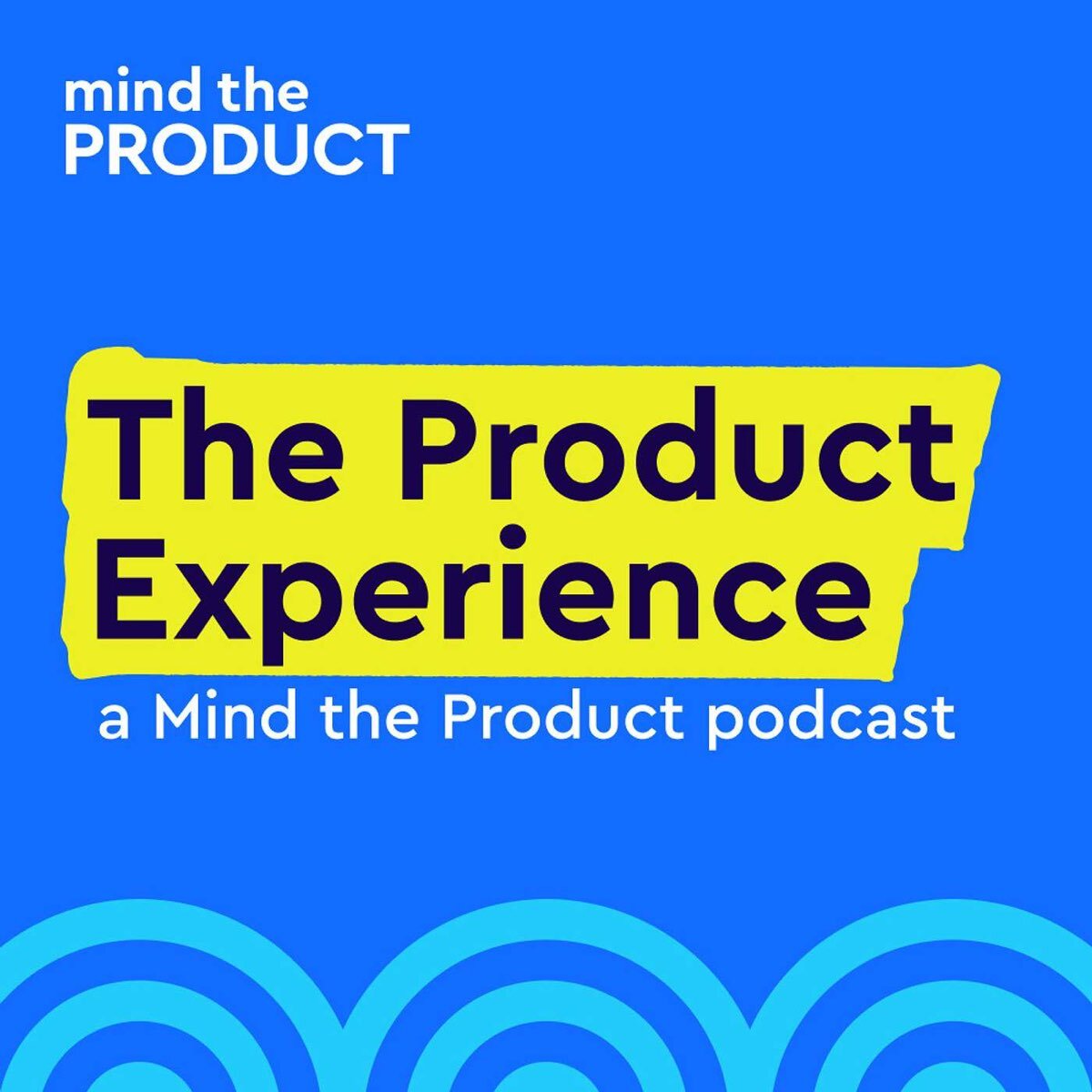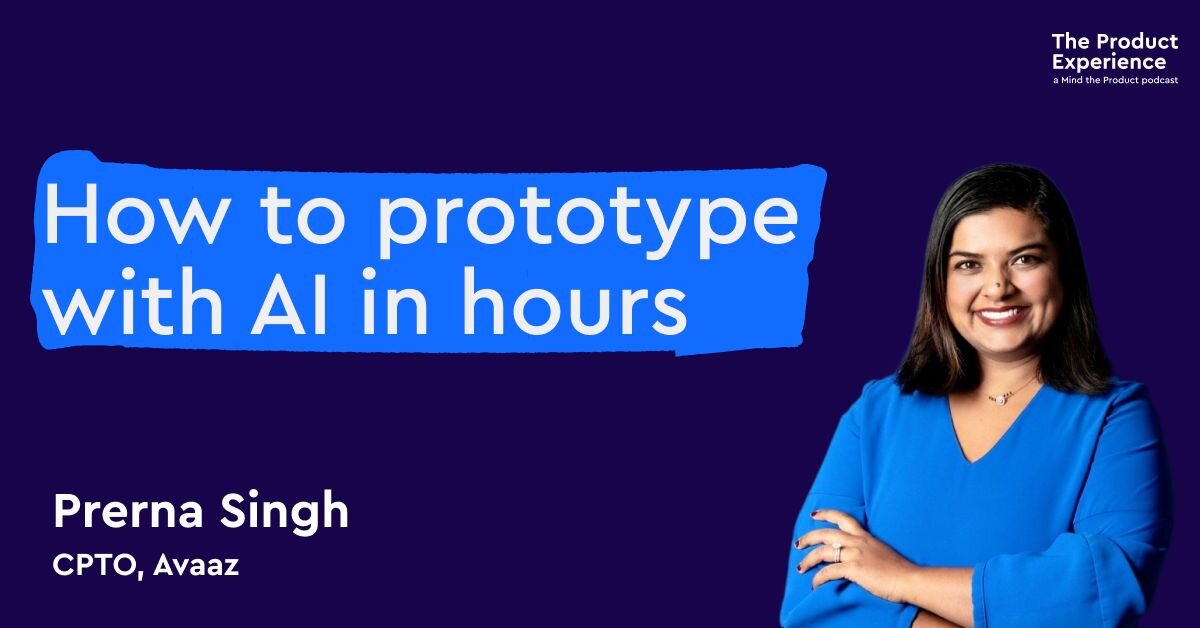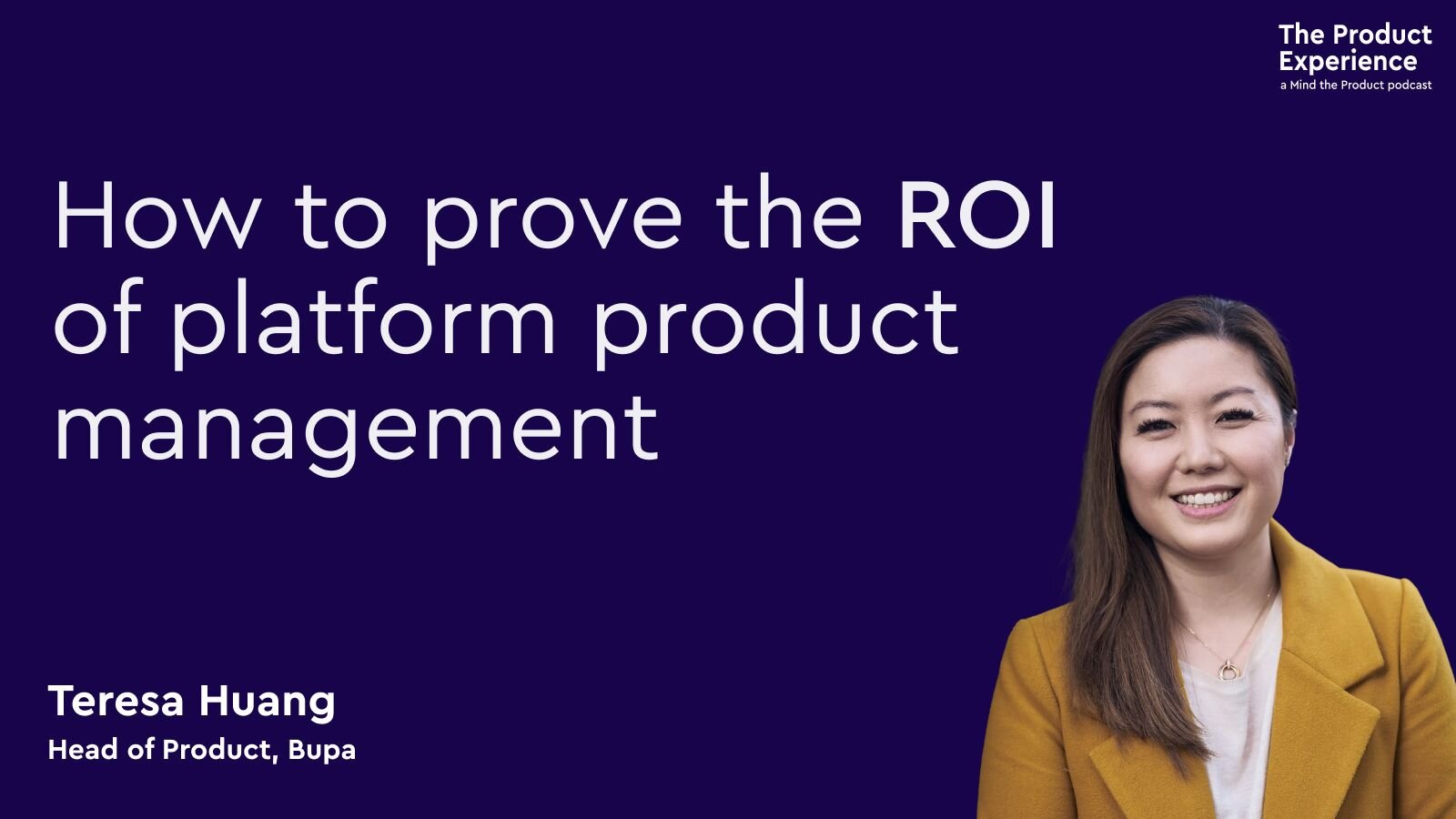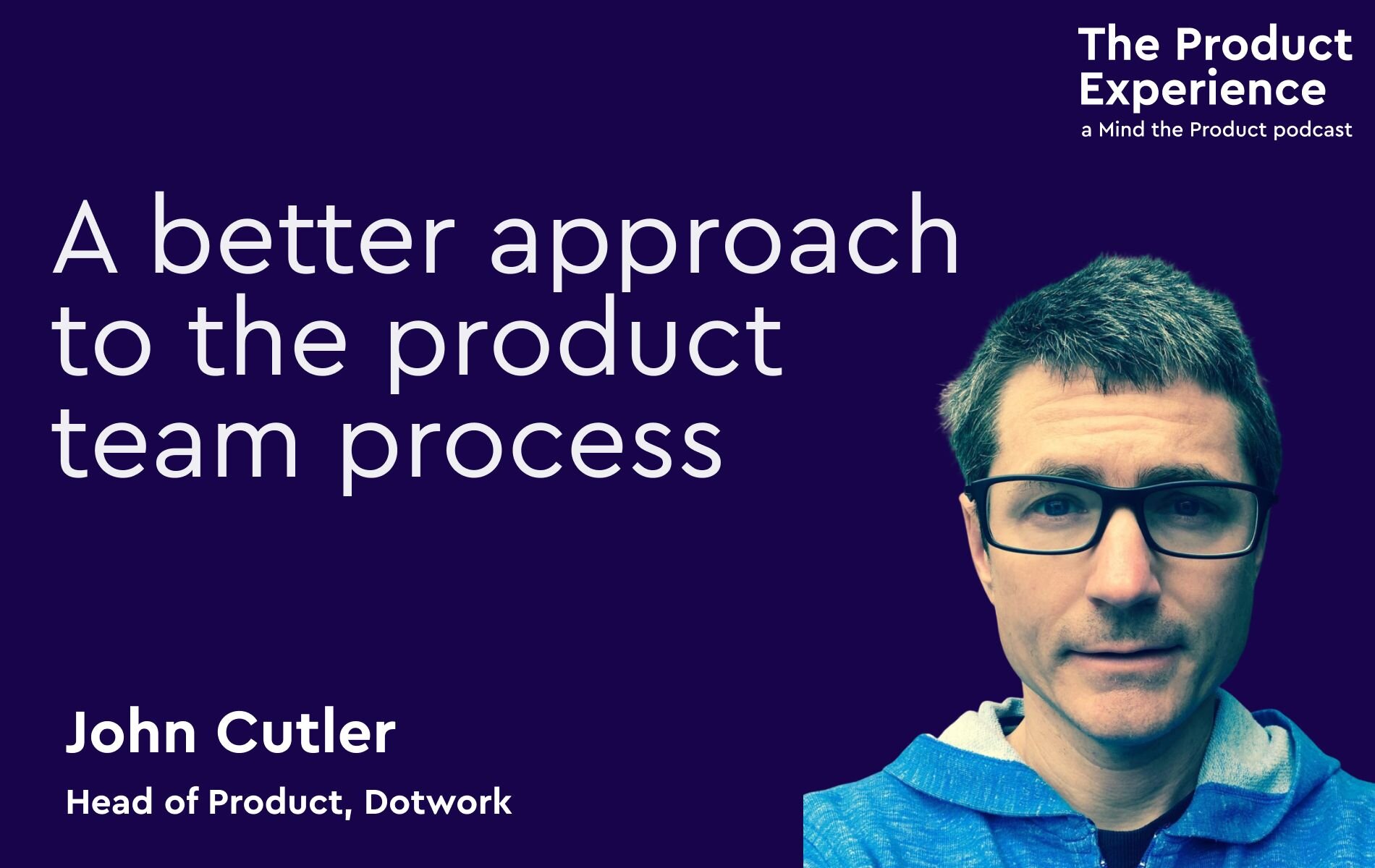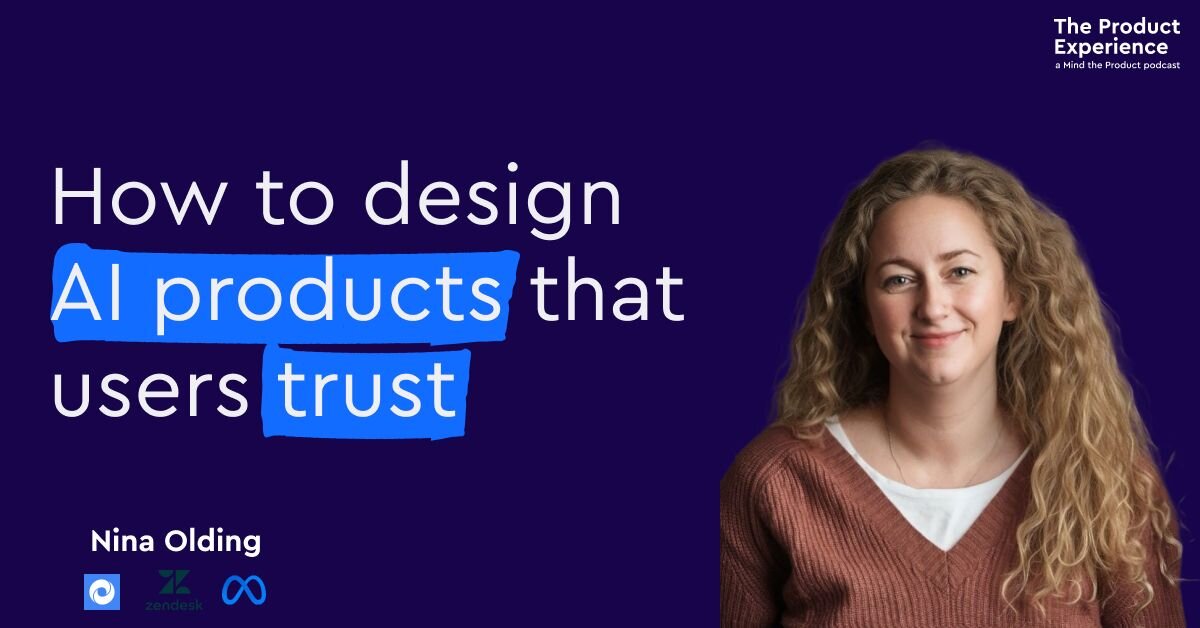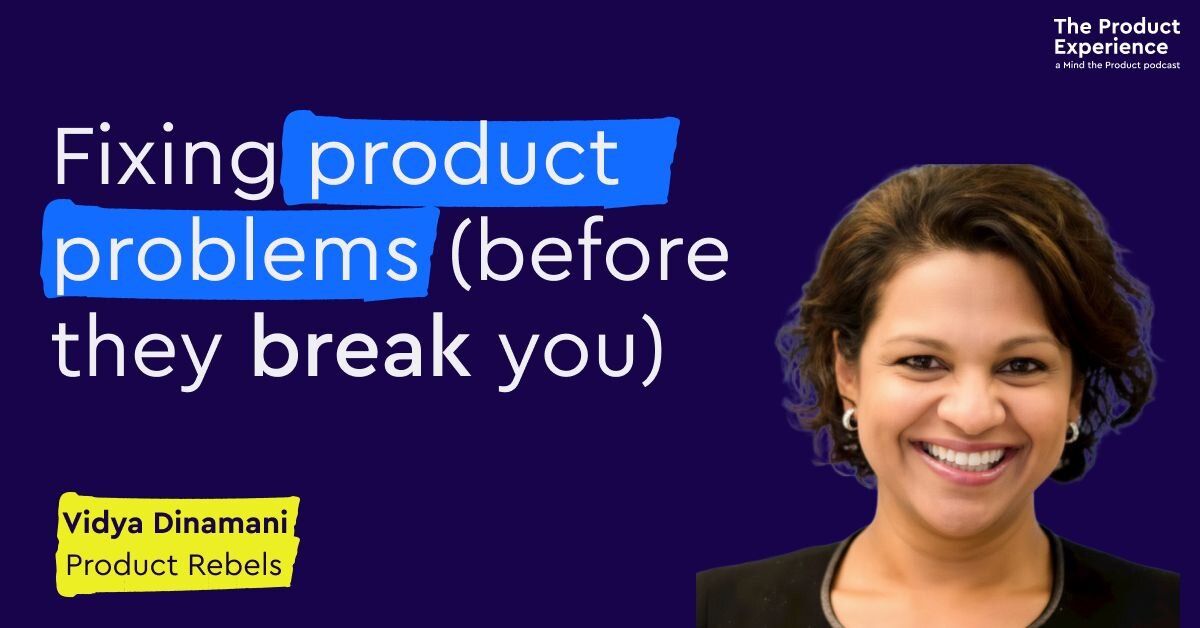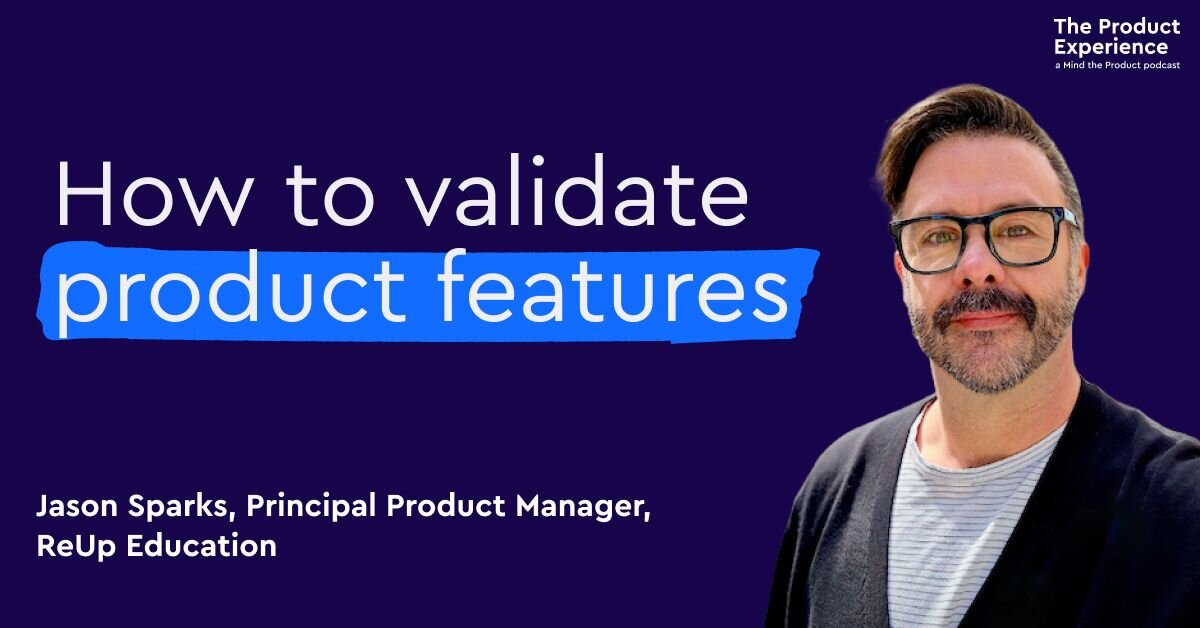What role do company values play in shaping successful product teams? Find out as we chat with Brian Walsh, SVP of Product at Pendo, who uncovers the power of open communication and collaboration in fostering a thriving product culture.
Chapters:
- 0:00 Company Values and Successful Product Teams
- 8:25 Organizational Values and Cultural Impact
- 16:33 Evolving Product Principles and Team Dynamics
Episode transcript
Lily Smith: 0:00
Welcome to the Product Experience Podcast On the pod. This week we chat to Brian Walsh, svp of Product at Pendo, about why and how your company values play an important part in creating the right environment for successful product teams. The Product Experience Podcast is brought to you by Mind, the Product part of the Pendo family.
Randy Silver: 0:23
Every week we talk to inspiring product people from around the globe visit mindtheproductcom to catch up on past episodes and discover free resources to help you with your product practice.
Lily Smith: 0:35
learn about mind, the products conferences and their great training opportunities create a free account to get product inspiration delivered weekly to your inbox. Mind. The product supports over 200 product tank meetups from New York to Barcelona. There's probably one near you. Welcome to the Product Experience Podcast, Brian. It's so great to meet you.
Brian Walsh: 1:01
Thank you, I'm really excited to be here. I absolutely love Amsterdam, and to do it in this clock room is really cool.
Lily Smith: 1:07
I know, and probably lots of people, are just listening to this and not watching it, so you're going to have to watch it on YouTube, guys.
Brian Walsh: 1:14
You've got to take it all in.
Lily Smith: 1:15
You have to see the clocks.
Brian Walsh: 1:16
It is a little spooky, a little eerie. I'm expecting a mouse to run out of one of these.
Lily Smith: 1:21
Yeah, I'm just very grateful that they're not all on Cleaning behind us right at the hour.
Brian Walsh: 1:26
It'll let us know when we're done.
Lily Smith: 1:27
Yeah, so before we get stuck into our topic, it'd be great if you could give us a quick intro to who you are, what you're doing in product and how you got into this crazy world.
Brian Walsh: 1:38
Wow, okay. So Brian Walsh, I'm SVP of product at Pendo, so I lead our analytics, in-app guidance, nps and then the underlying technology platform that supports all five of our product lines. I've been with Pendo now for about two and a half years. Prior to this, I was CEO of a consulting company, but a consulting company that focused 100% on product. So we built product for customers on an outsourced basis and partnered with those companies and brought them to market and learned with them.
Brian Walsh: 2:06
Prior to that, I was founder and CEO of a company out in Silicon Valley that was an audio video content management system. Prior to that, I ran product and engineering for a startup that was fully funded by Diageo. That was about inventory management for bars, restaurants and nightclubs. So that's a very long way to say I'm fairly old. The wrinkles really start showing it. In fact, my favorite thing is, if you always look at my image there on any of the presentations we do or at conferences, that's a headshot that I had taken in my 30s, and so now I look at it, I go. I used to always have just a perfect skin, no longer.
Lily Smith: 2:44
Well, you look exactly the same, and so now I look at it and I go I used to always have just a perfect skin.
Brian Walsh: 2:47
Well, you look exactly the same.
Lily Smith: 2:48
Oh, thanks, and that must have been really interesting, kind of being the CEO and founder of two companies and then going back into being an employee and answering to someone else.
Brian Walsh: 3:04
It was a very interesting transition of going through there and in fact I was really honest about that in the entire interview process of like, hey, I don't know what it's like anymore. I'd been 18 years so I didn't know what it was like to actually have a direct manager, and that's actually been something. I've worked with Tricia Price, our chief product officer. A lot of like hey, what am I supposed to respond to you? As, because I'm not used to having that relationship, it was also free.
Brian Walsh: 3:26
I think my experience as CEO is it could be incredibly lonely that by the time decisions finally get to your desk, there's an entire room of smart people who couldn't make that decision and at times it feels as if the biggest decisions, the hardest decisions, make it to you and that can feel isolating and lonely. And you would have passionate executives on both sides of an issue, both of who are correct, and you have to navigate that. And so there was a side of when I first joined that was freeing. Like I didn't feel like that final responsibility was mine. Now, that's not to say I didn't have accountability and responsibility for where we're going as a business, but more of I recognize that there are decisions that are for Tricia, there are decisions that are for Todd, and that I was not the decision maker I could influence and I could inform and be consulted. So that portion was good.
Brian Walsh: 4:18
I think the other interesting part of it is I went through just walking into a room where I realized that I'm surrounded by people who are much smarter than me, and so I definitely suffered imposter syndrome when I first joined, because you had brilliant voices across each of the domains coming together to work in a spot where they've been working for eight years and that was intimidating and that was a place where I had to find my own voice and center myself in my own confidence, feel confident to fail again, and it had always been.
Brian Walsh: 4:48
You know the Silicon Valley mantra of fail fast, and when I got in I was like but I can't fail, these people are relying on me, and so that overcoming that and I'll credit, actually, eric Chon, one of our co-founders really sat me down one day and said look, I just I want to know what you're thinking Like. I want to know what you're thinking, I actually want to know your thought process. Getting that insight is so valuable for me and it really helps me do my job and I was a game changer that moment sitting at our cafeteria, we're having a coffee together, and it helped break down that imposter syndrome and it gave me a voice and allowed me to take more bold actions, which is really one of our core values is be bold, and I wasn't bringing my full self or being fully bold until I started unlocking that.
Lily Smith: 5:31
Yeah, it's so interesting to hear you talk so openly about you know feeling imposter syndrome when you've been doing product for such a long time and you've even had your own business consulting in this. I think it's something that we all feel you know pretty much constantly. But it's nice to know you're feeling you know better and being you know you've been unlocked and you've been able to be bolder.
Brian Walsh: 5:54
Yeah, I mean, I think everyone feels it. I know I talked to other leaders, other people at Pendo, other people in the industry who will walk into that environment where they're humbled and you stand back and go, wow, why am I even in this room? The reality is you're in that room for a reason and there's nothing somebody's going to discover about you. There's no failure you're bringing to the market and you do have a unique point of view, and that humbling is a chance to grow faster and learn more and be open to change, be open to being challenged. We're not always supposed to be right. In fact, the majority of the time in our life we're not right.
Lily Smith: 6:30
Yeah.
Brian Walsh: 6:31
And so I think that that is a healthy process to constantly be reminded.
Brian Walsh: 6:35
And if we're not in situations where we're not actually feeling that way, I think that there's a portion of us not pushing ourselves hard enough, of not actually extending ourselves into this new environment where it's going to challenge us.
Brian Walsh: 6:47
And then, when we look at everything going on right now with AI, we're walking in with some people who are just crushing it, and the majority of the world is still trying to learn the basics, and so you're in this constant state of like who am I speaking with? I was with one group a couple of weeks back and we were talking and I realized halfway through the talk I was probably missing the mark, and so I finally asked how many people have done anything with AI, and no hand went up and I was like, wow, I just created massive imposter syndrome for this room because of the way I was approaching, and so I think it's really healthy to always keep that in check. We all have these human feelings. We are all human to begin with, and if we don't address that first and foremost, it's hard to have empathy for others, it's hard to have compassion, it's hard to build great products.
Lily Smith: 7:31
Yeah, so one of the things you mentioned there was that one of the values at Pendo is be bold, and I know that you mentioned as well before that you've had the fortitude of working in lots of companies where they have really strong sort of mission-led culture and values-led culture. What does that kind of like look like for you? Like what does a really strong mission and values-led culture look like?
Brian Walsh: 7:56
Well, I think that at its base, to deliver outside results, we have to create an environment where humans can thrive. Because we are technology companies or we are services companies I mean they're companies, but every company is just a group of humans working together and the mission is are we going the same direction? Are we all working towards that same goal? But I think that that is such. That's just the thinnest step that you can take. And I like to visualize.
Brian Walsh: 8:27
I'm a very visual person and I visualize that we're all standing out in the field together and the values are these tent poles that go around the circle of humans and how we choose to live is inside of those values and that's the tent that goes over us and that space that we fill between all those values is actually our culture and that when we're very intentional about that and when we go back and check that, that gets back to again like defining who we are, enabling an environment where we can thrive.
Brian Walsh: 8:59
And so I know, through my process multiple times now, of having set values for an organization or change them over time as your organization changes. And, as I came to Pendo, spent a lot of time through the interview process actually asking questions about the culture and the values, because it's so important for me and I think it's beyond the TAM and the vision and the people. It really was the culture and the values that I took a bet on, and there are seven different values. They've actually changed over time and they're things like be bold, maniacal, focus on the customer, win as a team, win together, and I just find that they're the cipher for the decisions we make. And I just find that they're the cipher for the decisions we make, and part of our job as leaders is to build an organization that can make decisions when you're not in the room, and our values are one of the ways that we can do that.
Lily Smith: 9:50
And do you find that the same values come up again and again? Because I've also been through a few exercises where we've tried to distill the values of a company. But I'm curious in your experience you said you've been through that process as well. So how do you really uncover what really matters to the business that you're working in?
Brian Walsh: 10:14
So I think part of it is your executive team and your founding team. There's a magic sauce of that group coming together and what has powered their decision and their achievements in the past, in my previous company I had a COO who brought a value of assumed noble intent. And assumed noble intent for me really changed how I embraced one-on-one conversations, like as we went into conflict, whether it was with a customer, whether it was with an employee, whether it was with a competitor. If I were able to ground myself in assuming noble intent, it changed my demeanor and it changed my conversation and I found that it actually disarmed a lot of tension. That doesn't work in all organizations. In some organizations actually, that tension is what they're looking for and that's how they operate.
Brian Walsh: 10:59
So I do believe that values are very personal for an organization. Salesforce, I think, has four or five, trust being one of them, customer success being another. I don't think that works for every while. I fully agree with trust being critical, I don't think that that would work for every organization to say that's their core value. So I do find that it's personal to the organization and that comes again about their humans. And so who is that executive team? What are the history of how they've worked together. What is their secret sauce for achieving success? And you codify that into values.
Lily Smith: 11:32
And how do you encourage your product teams to really embrace the values that you have?
Brian Walsh: 11:38
So I do not just I. I think the entire organization recognizes and acknowledges when we actually are living by our values and when we do it. So we have a system called PENC, pendo PENC and we PENC people, and that PENCing is recognizing when someone's really showing off a value. When I'll feel focused on a customer or respecting our time away from work you know, somebody stepped up to cover for me while I was on vacation and that not only goes on an ongoing basis where we thank each other within Slack, but then on a quarterly basis hey, who got the most? And we recognize that, we celebrate that. We also do it through our promotion process. Like it's very easy to see your culture and your values and how your decisions to promote, your decisions to give pay raises, your decisions to let people go, and so how does that show up for us? And so it is clear criteria of how does this employee who's up for promotion live our values and where have they shown that? We also talk in big product decisions.
Brian Walsh: 12:39
Be bold. I'll never forget one of the first product investments I was part of. It's what's now our data sync product and we had gone through and we proved out. Here's the market and the target and price points, and it was great. We lined everyone up and we were in the meeting and at the very end, a co-founder and CTO said I know that everybody's a yes, but I just have to check in Is this bold enough? Because it was way too easy to get to a yes? And it was this awesome reminder that at Pendo, we always go back to the value, even when we're aligned. And so I think that those are the constant, both as leaders, as an organization, you have to drive back to. If those are our tent poles, then how do we make sure that everyone sees them and we don't just run past them? And so we bring it back into day-to-day conversation and process.
Lily Smith: 13:25
I think it's really interesting and one of the values in one of the old companies that I worked for, which was quite a small business and I don't think we'd even documented our values. We were quite early stage and quite small, but one of the founders would always say but one of the founders would always say, bias for action. And that I think was, like you know, a value which we lived by and then also helped us make product decisions as well, of, like you know, let's just do it. Let's just do it and see what happens.
Brian Walsh: 13:51
Well, that's funny. That is one of ours bias to act, and I do find that values as an organization can be a bit Shakespearean as well, because we can go back to that tool set so often that at times we do it even in unhealthy ways. So BISACS is a perfect example for me of where just everyone's taking action and it's not coordinated and aligned right. And you turn around and you're like well, wait a minute, there's seven people working on this one problem and nobody's talking to each other. That's a great problem to have right. I'm not saying that we shouldn't do that, because by stacks, but no, that's a great problem. But then we should be aware of that, that these can be very Shakespearean and the best quality of us can be our downfall, and so we have to keep tabs on this and is this the way that we intended it to be used? And check in on that.
Lily Smith: 14:36
If you're looking at changing jobs and you're assessing other companies for whether they're a fit for you, how do you assess the values of that company and whether they really do live by them? Because I imagine some of it is a bit of theatre.
Brian Walsh: 14:55
Yeah, I mean, look, we all have the stories from the 80s and 90s with the motivational poster, yeah Right, and you know, and living in a cubicle and doing that, and we definitely don't want that. I'll first say I haven't had a lot of jobs in the last 20-something years. This is my third job in the last 20-something years, so I'm not a great example of how to do this. But I will tell you my experience that I try to express during interview process when I'm interviewing others, and also what I went through on this last one, which was, if I imagine that value at scale, what are the behaviors that I think that we would see from that? So if it's being maniacally focused on company or on a customer, or if it's respecting our lives outside of work, then there may be carry-on behaviors that I would expect to see in that organization. And so my questions may be about that behavior and not the value.
Brian Walsh: 15:45
And it's essentially a test to say, hey, I'm just pressure testing to see if that's actually, A, your interpretation of that value and, B, does it actually show up for you day to day? And it's sort of like when I'm coaching people on who are interviewing for us here that I encourage them to really triangulate between all of the opinions they've heard from everyone who's interviewing. Like the truth sits in the middle, and I think that our job in many things that we know not just interviewing is to pull this data together and find that middle point and that's the truth and to ground yourself in there. And so everything's going to be a personal match for an organization and getting the opinion of the four or five people that are interviewing you. What is it like to work here? How did you react to this? You can triangulate what that truth is and maybe get down to are these fake values or truly core to you?
Lily Smith: 16:32
Yeah.
Randy Silver: 16:33
This episode is brought to you by Pendo, the only all-in-one product experience platform.
Lily Smith: 16:39
Do you find yourself bouncing around multiple tools to uncover what's happening inside your product?
Randy Silver: 16:44
In one simple platform. Pendo makes it easy to both answer critical questions about how users engage with your product and take action.
Lily Smith: 16:52
First, Pendo is built around product analytics, enabling you to deeply understand user behavior so you can make strategic optimizations.
Randy Silver: 16:59
Next, Pendo lets you deploy in-app guides that lead users through the actions that matter most. Then Pendo integrates user feedback so you can capture and analyze how people feel and what people want, and a new thing in Pendo session replays a very cool way to experience your users' actual experiences.
Lily Smith: 17:19
There's a good reason over 10,000 companies use it today.
Randy Silver: 17:22
Visit pendoio slash podcast to create your free Pendo account today and try it yourself.
Lily Smith: 17:29
Want to take your product-led know-how a step further? Check out Pendo and Mind, the Product's lineup of free certification courses led by product experts and designed to help you grow and advance in your career.
Randy Silver: 17:40
Learn more today at pendoio slash podcast.
Lily Smith: 17:48
I think it's such a great thing to really dig into when you're talking to a company. So great advice.
Brian Walsh: 17:54
Well, I would add to that we are all incredibly talented and this is a job market where we still have choice in the marketplace. I mean, there are definitely pockets where it's hard to get a job and getting product can be difficult, but when you're in that product seat and you're developing outcomes and you're making wins happen, you have a lot of choice, and so you should find a place that you're going to thrive, because you're thriving is going to be just as much of your success and your business outcomes and what you achieve and put on your CV as anything else that you do. In this, it's not just about the skills you bring or the thought process you have. It's also about the environment you're walking in, so you should care about that.
Lily Smith: 18:34
And you mentioned earlier about mission as well, and I think you described it as a thin layer at the top, but I guess, at the same time, quite critical to have a mission to align everyone in the same direction.
Brian Walsh: 18:48
Yeah, that was a very leading statement to say thin, because in the end it does set it. And I think you know missions the most classic missions have been the ones that really set the scope of the vision right. To put a computer on every kitchen table or every desk. That is a brilliant, bold statement where at that point it was mini frames and to say, well, what would be all of the levels of infrastructure? And we're only a software company and we're going to affect all of that.
Brian Walsh: 19:16
And for Pendo, it's to improve the world's experience with software. That is so broad and brings us into so many places. It brought us in from working on the direct customer use case, working with how you build better products for your customers, into now working in the employee workspace, because what you buy as software is just as much of a software experience as what you build. And I think that the mission not only gave us permission to do that but also challenged us to do that. What are all of the ways we interact with software? And it continues, from that standpoint, to push us.
Brian Walsh: 19:51
We look at these new innovations that are coming out. We say, hey, it's moving to conversational interfaces, it's moving to AI driven, it's going to be voice at some point and it's driving all this, and is that the space we play? That's not the B2B space we have played. But yes, if our role is to improve everyone's experience with software, we haven't defined software a certain way. We said software, and so that is a daily challenge as an organization of what are the ways that software is changing and how do we be part of that. How do we power that? How do we make sure it's going to be even better than it is today? So I don't really think it's a thin layer. It was sort of the lead into why I think values and culture are really important, but I think they all work in harmony.
Lily Smith: 20:32
Yeah, and I guess one of the other layers that works in harmony with all of that, which is probably more in control of a product team, is the principles. Like the product principles. Yeah, like, how do you use product principles within your organization and how did you decide what product principles you were going to have?
Brian Walsh: 20:55
Well, I think principles overall are sort of this interesting concept because, again, similar to values, these are those guideposts for us as we go around.
Brian Walsh: 21:06
I think one of the things that's changed for us or I see us constantly leaning into is that we're learning, and those principles are a basis, but never forever, and so we began to modify, and so the way that I refer to it with our team.
Brian Walsh: 21:19
These are really strong opinions loosely held, and that data that we get or that learning that we have will change this, and so the principles shouldn't change every single day over time, but they also are not things that should last forever. We've recently been really looking at this concept of bringing B2C to B2B. Has been what we've been talking about for the last decade, and yet what I think that we've lost in this process is a focus on true outcomes. We've been so focused on what that experience is and making it playful or easy or delightful that we lose that, hey, this is to achieve an outcome, an outcome for our user, an outcome for our company, an outcome for their company, and so that principle begins to shift over time as we learn more, and so it's still a very strong opinion now that we've shifted to outcomes, but that doesn't mean the last one was wrong. It's based off of what we've learned or where we've gotten as an industry or a product team.
Lily Smith: 22:18
And do you find bringing different experience like product people into the team also shifts your principles as well? Because I feel like people. You know you get the characters of different product people, bringing how they approach things into the mix.
Brian Walsh: 22:36
Well, I think that that has been. The most interesting change in our industry is for the past 20 years. Everyone was on high growth, high hiring, there was free dollars out there, and so we were hiring and you were constantly infusing new blood into your culture. There was new people coming in, new approaches, new insights and, in fact, as leaders, we would often say, hey, we need to infuse something new into our organization. Our next hire should be and in this world now, running with efficiency and money is not for free and we need to get free cash flow and we need to be in profitability.
Brian Walsh: 23:11
That's forced us to really look at how do we infuse some of those new ideas in there as well, and so I fully agree that one of the tools to do this is through bringing in outside people and bringing in new perspective, and, in fact, I think a diverse team builds the best products period, no question asked. So what do we do in this world? I think things like Mind the Product are one way to do that, where it's about creating a community where, even if that community isn't one where they work with you every single day, it's one where you're sharing with each other, you're learning from each other, providing insights from each other, and you can incorporate that into your team, and so I think that what we're discovering over time is there's many ways to provide that sort of influence and change so that we can continue to improve as an organization.
Lily Smith: 23:58
So for any product managers out there who find themselves in a situation where they are trying to live by the values, trying to be mission driven, defining their principles and working for those, and are struggling with that across the rest of the organization you know, maybe they don't find that everyone else knows how to do this or is understanding of why it's important what kind of advice would you give that person?
Brian Walsh: 24:26
I'm going to start with building your team, building your first circle, building those groups that give you energy, give you support, give you affirmation, help you grow, because if you're truly feeling isolated and alone, it's never going to change at that level. And so I would reach out to those around you and build a group that we're working towards a similar goal. And I would caution not to be a bitch session. Let's all get together and just bitch about what's going on, or that one leader. It should be something that we become more powerful for, right, and it's.
Brian Walsh: 25:01
I used to have an executive coach. He used to tell me you need to find in your calendar things that give you energy. Right, our calendar is one of the biggest tools we have and many times it just zaps us. And he was like find those things, and this was when I was CEO. You need to put in your calendar every week, things that give you energy.
Brian Walsh: 25:19
Now, often, as we go down the organization, you may not have as much control with your calendar and you're just filling meetings with executives. But then what are the other methods that you can do to find the things that give you energy, that give you passion, that give you mission, that help you find success and then double down on that and double down and that becomes infectious and that, I think, helps us get through those tough moments. To the next side None of what we do is easy. The whole time being a human is not easy. But building the network to help us get through the tough times and then continue investing in the network to act as your karma bank, that's the golden ticket for me.
Lily Smith: 25:57
Amazing Thank you. What advice did you have, working in products, that really shifted your perspective on how to approach product management, either in a very general sense or in a very specific sense?
Brian Walsh: 26:12
I think it was Michael Sippy who said it was like get in the van, go to your customers, fall in love with their problems. Like you just have to be so in love with your customer's problem and not your own solution. And that continually comes back to me. It's this bias to love what we're building and to be so excited for what we're building that we lose sight of what the actual customer problem was. And I bring that back to our teams constantly of like what was our customer problem? How much do you know about? How has that customer problem changed over the last six months? We were just going through a roadmap review with Tricia and she said go back to the original spreadsheet and tell me how much of you are you're actually solving. And that's that same concept, right. Like you have to solve their pain, not the nice to have, not the easy win their pain. And that is a constant reminder for me of go back to customer pain, fall in love with it, fall in love with the customer, the problem, the pain, and then solve the problem.
Lily Smith: 27:11
Brilliant. I love it. Brian, it's been such a pleasure talking to you. Thank you so much for joining us today.
Brian Walsh: 27:17
Thank you, this is awesome. It was a lot of fun.
Lily Smith: 27:29
The Product Experience hosts are me, Lily Smith, host by night and chief product officer by day.
Randy Silver: 27:36
And me Randy Silver also host by night, and I spend my days working with product and leadership teams, helping their teams to do amazing work.
Lily Smith: 27:45
Luran Pratt is our producer and Luke Smith is our editor.
Randy Silver: 27:49
And our theme music is from product community legend Arnie Kittler's band Pow. Thanks to them for letting us use their track.
